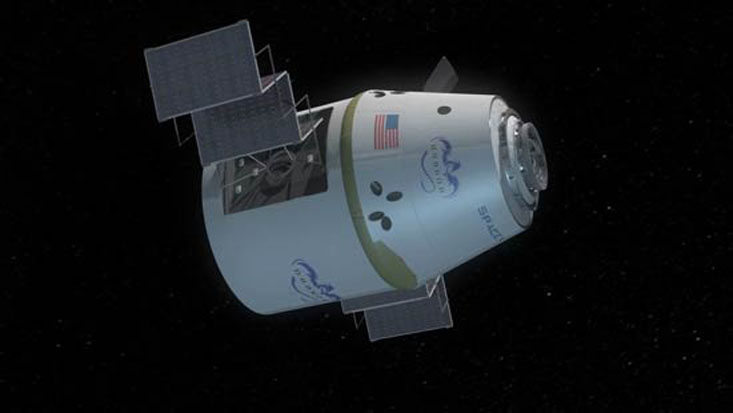SpaceX's Elon Musk and Joseph Gordon-Levitt Talk Manned Mars Missions (Video)
Billionaire rocket-maker Elon Musk of SpaceX shared his big vision for a "self-sustaining civilization" on Mars with actor Joseph Gordon-Levitt in a short documentary set to air this weekend.
The short film is part of a space-centered episode of Gordon-Levitt's newly launched show called "HitRecord on TV." It airs Saturday (Feb. 1) at 10 p.m. EST on the TV channel Pivot.
"In 1969 we were able to go to the moon — in a sense, vicariously we all went there," Musk tells Gordon-Levitt in an episode clip posted on YouTube. "If you asked almost anyone, 'What were some of the greatest things that happened in the 20th century?' I think they'd say, 'We landed on the moon.' That's frickin' awesome." [6 Fun Facts about SpaceX]
"I think it's realistic. I think it's extremely difficult," Musk said. "The question is how far can SpaceX advance that cause. The goal of SpaceX is to revolutionize space travel. The long-term goal is to establish Mars as a self-sustaining civilization as well as to just kind of have a more exciting future."
Gordon-Levitt, whose recent credits include "Looper" and "The Dark Knight Rises," premiered the variety series "HitRecord on TV" at the Sundance Film Festival earlier this month. In a tweet, Gordon-Levitt said the entire short documentary about SpaceX will be available on iTunes and Amazon on Feb. 2, a day after it airs on Pivot.

Elon Musk, who established SpaceX in 2002, has previously said that he has his sights on a Mars colony. In November 2012, in front of an audience at the Royal Aeronautical Society in London, Musk gave a broad outline of how he hopes to get humans to the Red Planet. At the time, his plans included a giant reusable rocket powered by liquid oxygen and methane that would carry colonists to Mars for about $500,000 per seat. He imagined that a small group of pioneers would plant the seeds for self-sustaining settlement of perhaps 80,000 people.
SpaceX is the first private company to ferry cargo to the International Space Station using its own rocket and capsule, the Dragon. So far, the Hawthorne, Calif.-based company has completed two of its 12 planned missions to the station under a $1.6 billion contract with NASA. SpaceX is also working on modifications to the Dragon capsule to prepare it for carrying astronauts to the orbiting outpost.
Get the Space.com Newsletter
Breaking space news, the latest updates on rocket launches, skywatching events and more!
Follow Megan Gannon on Twitter and Google+. Follow us @SPACEdotcom, Facebook or Google+. Originally published on SPACE.com.
Join our Space Forums to keep talking space on the latest missions, night sky and more! And if you have a news tip, correction or comment, let us know at: community@space.com.

Megan has been writing for Live Science and Space.com since 2012. Her interests range from archaeology to space exploration, and she has a bachelor's degree in English and art history from New York University. Megan spent two years as a reporter on the national desk at NewsCore. She has watched dinosaur auctions, witnessed rocket launches, licked ancient pottery sherds in Cyprus and flown in zero gravity on a Zero Gravity Corp. to follow students sparking weightless fires for science. Follow her on Twitter for her latest project.










